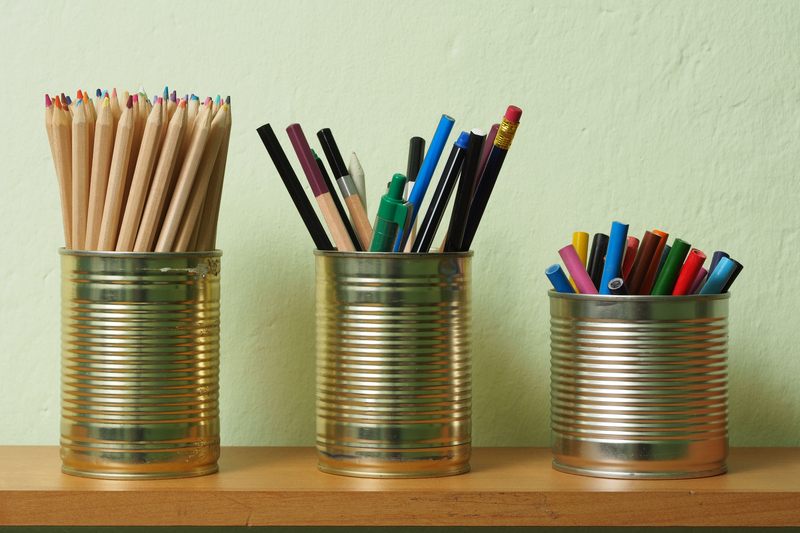How to Responsibly Dispose of Pots and Pans: A Complete Guide
Are you wondering what to do with old cookware cluttering your cabinets? Discover eco-friendly, efficient, and responsible ways to dispose of pots and pans, ensuring you help the planet and keep your home tidy. Whether your pans are nonstick, stainless steel, or cast iron, this comprehensive guide covers every step of the process.

Why Proper Disposal of Pots and Pans Matters
Many of us accumulate a collection of old or worn-out cookware over time. Throwing old pans in the trash often means they end up in landfills, where materials like metal and nonstick coatings pose environmental hazards. Instead, responsible disposal of pots and pans helps conserve resources, reduces pollution, and may even benefit community members in need.
The Environmental Impact of Cookware Waste
- Metals: Items like aluminum and stainless steel take hundreds of years to break down.
- Nonstick Coatings: Teflon (PTFE) and similar coatings can leach chemicals into soil and water.
- Textiles and Plastic Handles: These components are rarely biodegradable and add to plastic waste.
Opting for responsible cookware disposal prevents environmental harm and supports recycling initiatives.
Best Methods for Pots and Pans Disposal
Before tossing your cookware, consider the following responsible options:
1. Repurpose and Reuse
Before you consider any disposal method, think creatively! Old pots and pans can gain new life:
- Planters: Use pans or pots (with drainage holes) for growing herbs or flowers.
- Organization: Large pots store garden tools, utensils, or craft supplies.
- Pet Bowls: Clean and sanitize for use as water or food bowls for animals.
- Art Projects: Turn pans into clocks, bird feeders, or wall decorations.
Reusing cookware at home reduces waste and supports sustainable living!
2. Donate Usable Pots and Pans
If your cookware is still in usable condition, consider donating it. Many people are looking for budget-friendly kitchenware.
- Local shelters, food banks, or community kitchens may accept gently used pots and pans.
- Thrift stores like Goodwill or Salvation Army often take cookware donations.
- Online platforms such as Freecycle, Facebook Marketplace, or Craigslist allow you to gift items locally.
Always check donation guidelines: items must be clean, free of excessive rust, and have handles securely attached.
3. Recycling Old Pots and Pans
One of the best ways to responsibly dispose of old cookware is through recycling. Cookware is typically made from metals (aluminum, stainless steel, copper, or cast iron), all of which are recyclable.
How to Recycle Cookware
- Scrap Metal Yards: Most local scrap yards accept metal pans, even if they're rusty or missing handles. Remove non-metal parts (plastic, rubber, wood) if possible.
- Municipal Recycling: Check your city's recycling guidelines. Some accept small appliances and metal housewares, others do not.
- Retailer Take-back Programs: Some stores (like certain cookware brands or major retailers) offer recycling programs for old pans when you purchase new ones.
Important! Not all recycling centers accept nonstick pans due to their Teflon coating. Contact your local facility for specific rules.
- Remove all non-metal pieces before recycling (e.g., plastic knobs, silicone handles).
- Wash the pans to remove food residue.
- Group similar metals together to streamline the process.
4. Dispose of Nonstick Cookware Responsibly
Nonstick pans require special care during disposal due to their coatings, which can contain potentially hazardous chemicals.
- Contact your local waste management authority; some offer special disposal programs for nonstick pans.
- If recycling isn't possible, dispose of them in the trash as a last resort, and request landfill-safe disposal when available.
- Many manufacturer mail-back programs exist for their own cookware -- check brand websites.
Never burn or incinerate nonstick cookware, as the fumes can be dangerous to your health and the environment.
5. Sell Valuable or Specialty Cookware
Rare or vintage cookware (for example, enameled cast iron, copper, or brand-name nonstick pans) often holds value for collectors or avid cooks.
- Sell through eBay, Etsy, Facebook Marketplace, or local consignment stores.
- List details and clear photos; mention any damage or flaws for transparency.
- Research similar items to price fairly and attract buyers seeking specific brands or models.
Turning old cookware into cash is environmentally considerate and rewarding!
What Not to Do When Disposing of Pots and Pans
- Don't toss metal cookware in regular curbside recycling bins without checking guidelines; it can damage recycling machinery.
- Don't donate severely damaged or unsafe cookware--cracked, broken, or heavily rusted items should be recycled instead.
- Never incinerate nonstick pans, as they release toxic fumes.
Frequently Asked Questions About Disposing of Pots and Pans
Can I Put Pots and Pans in Curbside Recycling?
Most curbside recycling programs do not accept cookware due to the risk of damaging sorting equipment. Always check with your municipality and use dedicated metal recycling facilities.
Are All Pots and Pans Recyclable?
Most metal cookware (stainless steel, cast iron, aluminum) can be recycled, but nonstick coatings must usually be removed prior. If this isn't possible, check with your local recycling center about acceptance policies.
How Do I Prepare Pots and Pans for Recycling?
- Scrub clean and dry thoroughly.
- Remove plastic, silicone, or wooden handles if possible.
- Separate cookware by material (aluminum, cast iron, etc.).
What About Ceramic or Glass Cookware?
Ceramic and glass pans cannot be recycled with metals. Some communities accept these with curbside glass, others require landfill disposal. Reuse as planters or decorative objects when possible.
Tips for Extending the Lifespan of Pots and Pans
Practicing responsible disposal of pots and pans starts with making them last longer! Follow these tips:
- Hand wash and dry cookware instead of using dishwashers for nonstick or delicate items.
- Avoid abrasive cleaners or steel wool that can damage surfaces.
- Store cookware properly, stacking with protectors to prevent scratches.
- Use utensils made of wood, silicone, or plastic on nonstick pans to avoid scratching.
- Season cast iron pans regularly to maintain their coating and prevent rust.

Summary: The Importance of Responsible Cookware Disposal
Decluttering your kitchen doesn't have to mean harming the environment. With so many sustainable ways to get rid of old pots and pans, from recycling and reusing to donating and selling, making eco-conscious choices has never been easier. Remember to check with your local recycling and donation programs, follow preparation guidelines, and consider creative repurposing options.
By disposing of cookware responsibly, you help conserve resources, reduce landfill waste, and maybe even make a positive impact on someone else's life. Don't let that old saucepan gather dust--give it a second life today!
Additional Resources for Responsible Pots and Pans Disposal
- Earth911 Cookware Recycling Guide
- Find Your Local Goodwill
- Freecycle for Neighborly Sharing
- Habitat for Humanity Restores
Responsible pots and pans disposal isn't just a chore--it's a small step toward a greener, cleaner world.
